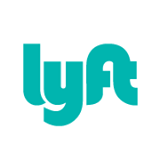After a debate among lawmakers over the best way to regulate services like Uber and Lyft, the Texas Senate on Wednesday backed a proposal that would override local regulations concerning ride-hailing companies.
House Bill 100 would establish a statewide framework to regulate ride-hailing companies and undo local rules that the two companies have argued are overly burdensome for their business models.
“Regulating them at the city level will always be challenging,” the bill’s Senate author, state Sen. Charles Schwertner, R-Georgetown, said. “Transportation, by nature, is a regional concern.”
His bill passed in the upper chamber in a 20-10 vote on its third and final reading. The measure now heads to the governor’s desk.
Though the vote on the bill was originally announced as 20-10, senate records later showed it actually passed 21-9, meaning more than two-thirds of the Senate supported the measure. That distinction matters because of a provision in the bill that allows it to go into effect immediately after the governor signs it instead of on Sept. 1 if it receives support of two-thirds of the members in both chambers. As the measure passed the House in a 100-35 vote, it means ride-hailing companies like Uber and Lyft could potentially return to cities like Austin as early as this summer.
You know the story on this one. The offensive “definition of sex” amendment is still in there, which I have to hope winds up not meaning much in the grand scheme of things. And I agree with mayor Turner that this is “another example of the legislature circumventing local control”, but all things considered it’s less of that than it could have been. I know I’m rationalizing, but such is how it is these days. Expect to see the pink Lyft mustache in town again, as they have been recruiting drivers in anticipation of this. Maybe some other services will come to town as well. Whatever you think of this soon-to-be-law, there will be one fewer obstacle to entry.



Fewer barriers to entry is a win for the consumer. Texas is supposed to be “open for business,” and this is in furtherance of that. In the state vs. local control argument, the win should always go to the people. More competition is a win for the people. The people just won, as did Uber and Lyft.